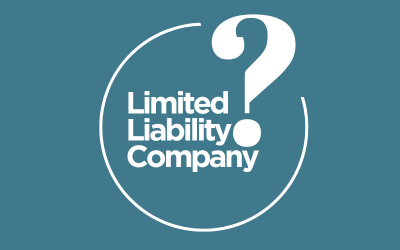Starting a business in Delaware has become popular with entrepreneurs looking to establish their companies in a state that has a business-friendly environment and a favorable tax structure.
Businesses don’t have to be located in or conduct business in the state to form an entity in Delaware. According to the Delaware.gov website, more than 60% of Fortune 500 companies are incorporated in Delaware. But the organization in Delaware is not only for U.S. entities, companies around the world can take advantage of Delaware’s benefits.
For those of you interested in exploring the benefits of starting a business in Delaware, keep reading! In this article, we’ll discuss the main steps and considerations associated with launching a company in what is known as the Diamond State.
1. Assess the Viability of Your Business Idea
No matter where you intend to start a business, a very important first step is to ensure your business idea is viable. Start by answering the following questions:
- Is there a need in the market for your product or service?
- How big is the market for your product or service?
- Will you have a competitive advantage over other companies that are offering similar products or services?
- How difficult will it be to implement your idea? i.e., What financial, technological, and human resources will you need? What legal, operational, or administrative obstacles might stand in your way?
Also, consider if you have the knowledge, skill set, and determination to run a business. Not everyone is cut out for entrepreneurship!
2. Decide on Your Business Structure
Popular types of business entities in Delaware are Sole Proprietorships, Partnerships, Limited Liability Companies, Limited Partnerships, and C Corporations. Other entity types also exist such as Limited Liability Partnerships, Statutory Trusts, Public Benefit Corporations, and Unincorporated Nonprofit Associations.
The best choice will depend on various factors including the entrepreneurs’ preference for owners’ degree of personal liability, tax treatment, leadership and management flexibility, and business compliance complexity.
Let’s take a quick look at a few of the structures and identify some of the potential advantages and disadvantages of each option.
Sole Proprietorship
A sole proprietorship is considered the same entity as its owner (which can be an individual or a married couple). There’s no formal registration required to operate as a sole proprietorship in Delaware. However, just like companies registered as formal entities, sole proprietors must abide by all applicable licenses, zoning, and tax laws. Because a sole proprietorship and its owners are one in the same legally, if someone sues the business, the owners are at risk of losing their personal money and property. Sole proprietorships report business income on their individual tax returns. Throughout the year, business owners must make quarterly estimated income tax payments (which include their 15.3 percent self-employment tax) because their taxes aren’t withheld on paychecks from an employer.
Partnership
Partnerships in Delaware are multi-owner businesses that are similar to sole proprietorships in that they are not a separate entity from their owners. Partners pay tax on the business’s income on their personal tax returns. Delaware partnerships also must also file a Partnership Return and pay an annual tax.
Limited Liability Company (LLC)
The LLC structure provides legal separation between owners (called members) and the business, giving owners personal liability protection. Meanwhile, the owner and the company are still viewed as the same tax-paying entity, and by default, an LLC’s income passes through to its owners’ personal tax returns. Single-member LLCs (disregarded entities) are taxed as sole proprietorships for tax purposes. Multi-member LLCs are treated as partnerships. The LLC must also file either a partnership return, S corporation, or C corporation return depending on its tax election.
LLCs have some tax treatment options. They can choose to be taxed as an S Corporation (if 100 or fewer members) or a C Corporation. An advantage of an S Corporation election is that the LLC retains its underlying legal structure and gets pass-through tax treatment, only not all business profits are subject to self-employment taxes (as is the case with a sole proprietorship or partnership). As an S Corporation, LLC members only pay Social Security and Medicare taxes on the wages and salaries the business pays them. Their income from company profit distributions is not subject to those self-employment taxes. While most states require LLCs to file annual reports, Delaware does not. However, Delaware LLCs are required to pay an annual tax.
Limited Partnership
In a limited partnership (LP), there are general partners and limited partners. The general partners are exposed to the same liability risks as in a general partnership (i.e., there’s no separation between the individuals and the business) while the limited partners (provided they aren’t involved in managing the company) receive personal liability protection up to the amount of their investment in the company. LPs’ income is taxed the same as in a general partnership.
C Corporation
Businesses operating as C Corporations offer the highest degree of personal liability protection of owners (shareholders) and opportunities for growth through selling stock to an unlimited number of shareholders. A C Corp is an entity independent of its owners, and the business must report and pay income tax on its profits. One potential disadvantage of the C Corporation tax status is that it results in what many call double taxation. Some company profits, those that get distributed to shareholders as dividends, get taxed twice: once at the corporate level and then again at the individual shareholder level. Corporations must file an annual report and pay a state franchise tax.
If it meets all requirements for eligibility (such as having 100 or fewer shareholders), a C Corporation can opt for S Corporation tax treatment. This allows the company to avoid double taxation because corporations that elect to be taxed as an S Corp get pass-through tax treatment.
S Corporation
As mentioned earlier, the S Corporation isn’t an entity type, but rather a tax election that an LLC or a Corporation may make if it meets the IRS’s eligibility requirements and submits Form 2553
3. Choose a Business Name
Your business name can serve as a foundation for your brand identity, so it’s important to give it a lot of thought and to make sure you can legally use the name before you print business cards, create a website, etc.
You can use CorpNet’s Corporate Name Search tool to check to see if another entity in Delaware has already claimed a business name. Delaware allows entrepreneurs to reserve an available name for 120 days by filing a Name Reservation Application. Reserving a name isn’t required, but it’s helpful when business owners know the name they want but aren’t quite ready to officially register their business. The state even allows for re-reserving a name reservation after first applying for one.
Sole proprietorships and partnerships that use a business name that’s different from the legal name of the business owner must file a Registration of Trade, Business & Fictitious Name Certificate.
Business owners that may want to expand operations into other states will want to check to make sure no other companies in the U.S. are using their desired name. Doing a trademark search can help identify the availability of business names nationally, as it detects if another company has filed for or was granted a trademark to protect the name in all 50 states.
4. Write a Business Plan
A business plan serves as a road map of what a business will do, how it will do it, and its goals and strategies to accomplish those goals. The length and complexity of a business plan will depend on the type of business. You can find examples of business plans by industry on Bplans.com and other online sources. One helpful resource as you embark on developing your business plan is SCORE, a non-profit that offers free guidance from its force of volunteer business mentors.
5. Designate a Registered Agent
LLCs and Corporations registered in Delaware must have a professional Registered Agent with a physical street address in Delaware. A Registered Agent accepts service of process (official government documents, legal papers, etc.) on behalf of a business. It can be helpful to designate a Registered Agent (such as CorpNet) that can offer services in all 50 states. That eliminates the need to seek out Registered Agents in each state if you decide to expand your business beyond Delaware.
6. Register With the State of Delaware
What you need to do to form your business entity when starting a business in Delaware will depend on the type of business structure you’ve chosen.
- Sole proprietorship – No organizational documents are necessary to operate as a sole proprietor in Delaware. If using a name other than the owner’s first and last name, a DBA filing is required. Sole proprietorships, like other business types, must obtain a Delaware business license.
- Partnership – Partnerships may need to submit a State of Delaware Statement of Partnership Existence. A Delaware business license is also required. Although not required by law, a written partnership agreement is recommended, so all rights and responsibilities of partners are documented.
- Limited Liability Company (LLC) – It requires filing a State Of Delaware Certificate Of Formation Of Limited Liability Company to form an LLC in Delaware. Although not required by law, members of an LLC should consider preparing an LLC operating agreement to document how the LLC should be run and the responsibilities of members (or managers).
- Limited Partnership – A State of Delaware Certificate of Limited Partnership must be filed to form an LP in Delaware. The state doesn’t require a partnership agreement, but it’s beneficial for partners to create one so that responsibilities are clear and there’s documentation in the event of disputes among partners.
- C Corporation – If you incorporate in Delaware, you will be required to file a Certificate of Incorporation. A corporation must also appoint a Board of Directors and adopt bylaws (rules for how the corporation will be run and decisions will be made).
The fees vary for filing the forms associated with registering a business in Delaware.
7. Obtain Your Delaware Business License
All Delaware businesses must have a Delaware Business License from the Division of Revenue. The license must be renewed annually. Depending on the type of business, activities conducted, and location, companies may need other licenses and permits, as well.
8. Obtain an Employer Identification Number
All businesses that hire employees must have an employer identification number (EIN). Even those without employees might need one because many banks require them before they’ll open up a bank account for a business. Sometimes an EIN is requested on other official paperwork, too. Fortunately, EINs are free from the IRS, and CorpNet can assist companies in obtaining them by completing and submitting the application (Form SS-4) for them.
Note that businesses with employees must also file a report to calculate their Unemployment Insurance liability payable to the Delaware Division of Unemployment Insurance. And in most situations, businesses with employees must also carry Workers’ Compensation Insurance. Learn more about registering for payroll taxes in Delaware.
9. Open a Business Bank Account
By law, LLCs, LPs, and Corporations must keep their business and personal funds separate, so it’s critical to get bank and credit accounts specifically for the business. If they commingle personal and business expenses and financial transactions, entrepreneurs risk losing their personal liability protection because a court may decide they breached the line that separates the individual and the business entity (known as the corporate veil).
10. Prepare for State Tax Obligations
The state of Delaware imposes no state or local general sales tax or VAT taxes. And local real property taxes are low within jurisdictions within the state.
Taxes that may apply to businesses in Delaware include:
- Gross Receipts Tax – Businesses that will provide goods or services in Delaware must pay the state’s gross receipts tax.
- Employer Withholding Taxes – Businesses with employees must register with the Delaware Division of Revenue (DOR) to withhold federal, state, and local income tax, Social Security, and Medicare taxes from their workers’ wages and salaries.
- Delaware State Corporate Income Tax – Every domestic corporation, foreign corporation, and LLC being taxed as a corporation doing business in Delaware (unless exempt) must file a corporate income tax return (Form 1100 or Form 1100EZ) and pay an 8.7% tax on its federal taxable income allocated and apportioned to Delaware. There is no minimum corporate income tax. Sole proprietorships, partnerships, LLCs, and S Corps with pass-through taxation are not subject to the corporate income tax, as the profits distributed as income to owners are taxed at applicable individual income tax rates.
- Franchise Tax – All corporations incorporated in the State of Delaware (even if they do not conduct business in the state) must pay a Franchise Tax and file an Annual Report. The state requires a minimum tax of $175.00. The tax and the report are due by March 1 each year.
- Annual Tax – Although Limited Liability Companies, Limited Partnerships, and General Partnerships registered in Delaware do not have to file an Annual Report, they must pay an annual tax of $300.00, which is due by June 1 of each year.
The state of Delaware’s website provides links to its business tax forms. To save time and ensure you’ve set up the Delaware tax accounts needed to fulfill your tax obligations, consider asking CorpNet to assist you.
11. Obtain Other Certifications and Licenses
In addition to the general Delaware business license, other licenses or permits specific to the industry, profession, or location might be required. You can find a list of Delaware requirements by industry on the state’s website and federal requirements by industry on the SBA website. Note that it’s always wise to ask these agencies about any additional registrations, permits, etc. that you’ll need to obtain. The county, city, or town where the business will be located can advise on local license and permit requirements.
CorpNet is another resource that can help you identify and apply for the necessary licenses and permits required where your business will operate.
12. Comply With Zoning Rules
If a business is physically located in Delaware, it must comply with the local zoning regulations. Even home-based businesses need to research and follow zoning laws. A resource that can help identify the zoning rules in specific municipalities is Municode. Consider checking directly with the local municipality about zoning ordinances to make doubly sure you understand the rules.
13. Get Business Insurance
Business insurance can offer peace of mind to business owners, and some types of businesses, depending on their business activities and industry, may be required to hold specific types of insurance coverage.
Common business insurance types include:
- General Liability Insurance
- Product Liability Insurance
- Vehicle Insurance
- Professional Liability Insurance (also known as “errors and omissions” insurance)
- Property Insurance
- Workers’ Compensation Insurance
- Business Interruption Insurance
- Home-based Business Insurance
14. Seek Funding
Often, it will require more than just the business owner’s finances to launch a company. Entrepreneurs sometimes need to reach out to banks, credit unions, angel investors, government programs, crowdfunding platforms, and other sources of capital to fund their business dream.
As far as Delaware-specific funding opportunities go, here are a few resources to consider:
- Delaware’s Small Business Development Center – The Delaware SBDC provides free financial advising and low-cost workshops. Although the center does not directly offer funding, it helps entrepreneurs determine which financing options might be the best fit and prepares them for the application process.
- The U.S. Small Business Administration – The SBA provides information about funding programs including loans, investment capital, surety bonds, and grants.
Also look at the Delaware state website, which lists different programs related to incentives and credits, opportunity zones, and angel investors.
15. Annual and Ongoing Requirements<
Regardless of entity type, all businesses in Delaware have some ongoing requirements to operate legally in the state. Attorneys and tax professionals can advise on the specific obligations that a company needs to fulfill. Also, CorpNet’s Compliance Portal, a free online portal, provides a convenient way to keep track of upcoming report and filing deadlines.
16. Get Answers When Needed
The state of Delaware offers a lot of information and resources online to help business owners succeed. Below are several that can help you learn more about doing business in Delaware.
- Delaware Division of Small Business
- Business First Steps (an index of Delaware business licenses and registrations)
- Delaware Prosperity Partnership (the nonprofit that leads the state of Delaware’s economic development)
- Delaware District Office of the U.S. Small Business Administration (SBA)
And, after you’ve consulted with your attorney, accountant, tax advisor, and other licensed professionals about all legal, financial, and tax aspects associated with starting your business in Delaware, CorpNet is here to save you time and ensure your paperwork is done accurately and quickly.
Contact us today to help with your business registration applications and other filings!
Download a Free Guide
CorpNet has the ultimate guide to starting, protecting, and operating a business in Delaware. Topics include trending industries in Delaware, drawbacks to starting a Delaware business, tips for protecting personal assets (personal vs. business debt), a review of business structure options, and a comparison of the Delaware LLC vs. the S Corporation.





